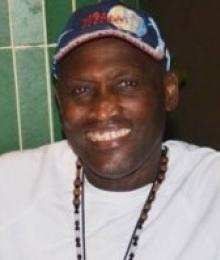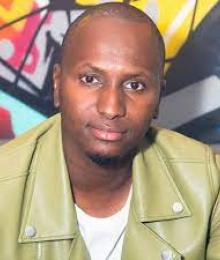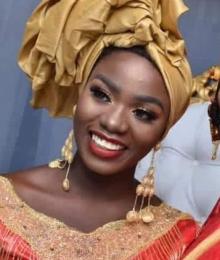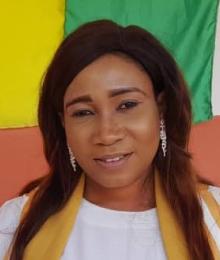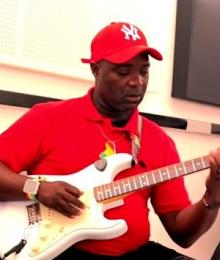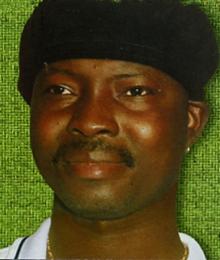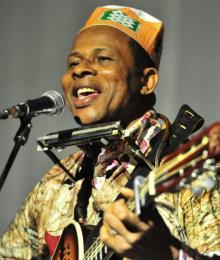
Halima Bah, whose real name is Halimatou Bah, is a Guinean artist born on January 1, 1996, in Tambacounda, Senegal. Originally from the prefecture of Koubia, she is a prominent voice in pastoral music and grew up between Labé, Conakry, and Dakar. A self-taught musician with no access to formal education, she initially pursued a career in sewing before turning to music in 2013.
Drawing inspiration from her personal experiences and the social realities of Guinea, she creates powerful, socially conscious songs such as "Sabou Modjo Yawa" and "Forsa Djomba", the latter denouncing forced marriage. Since 2018, she has co-managed Lima Klins Prod with her husband Klins Diallo, and in 2021, she released a double album titled "Wowta-Woula" and "Forsa-Djomba". Her success on YouTube—with several music videos surpassing a million views—and her tours across Africa and Europe have made her a symbol of resilience and a rising star in contemporary African music.
Introduction
Born on January 1, 1996, in Tambacounda, Senegal, Halimatou Bah, known artistically as Halima Bah, is today one of the most influential voices in Guinean pastoral music. Originally from the prefecture of Koubia, she grew up between Labé, Conakry, and Dakar, three cities that deeply shaped her musical and cultural identity.
Her journey is all the more remarkable as she did not have the opportunity to follow a traditional educational path. Self-taught and determined, Halima first learned sewing before discovering her true passion for music. It wasn't until 2017 that she began taking evening classes to improve her communication with fans, demonstrating her constant desire for growth.
Early Career
In November 2013, in Dakar, Halima took her first steps into the music world. Like many young talents, she initially had to hide her passion from her family, fearing their disapproval. Her soft, melancholic voice, carrying deep emotions, quickly caught the attention of Djiby Maci, who offered her the opportunity to join the group Bagada Wonson, marking the official beginning of her artistic career.
The young artist, who lived far from her parents in Dakar, found refuge in singing to ease her melancholy. This sensitivity is reflected in her compositions, where she transforms her personal experiences into poignant songs that resonate with an increasingly wide audience.
Music Rooted in Social Realities
What distinguishes Halima Bah in the African music landscape is her ability to draw inspiration from her own life and the social realities of Guinea. Her first single, "Sabou Modjo Yawa," was born from a painful experience: a marriage rejection linked to her father's financial situation. She continued with "Forsa Djomba," a powerful denunciation of forced marriage that still affects many young girls in Africa.
Her music, carried by authentic pastoral rhythms, quickly became a voice for women and a mirror of Guinean society. Her lyrics, often sung in Fulani, resonate beyond linguistic and cultural barriers, appealing to both Fulani communities and other ethnicities.
Rise and Digital Success
Between 2013 and 2017, Halima self-produced her music, demonstrating once again her determination and independence. Her journey took a significant turn in January 2018 when she joined Lima Klins Prod, a structure she now co-directs with her husband, Klins Diallo, a cultural operator based in Geneva. She also signed a partnership with Evidence Musique in Switzerland, thus consolidating her professionalization.
Digital success was not long in coming. Her YouTube channel, monetized and with more than 73,000 subscribers, has accumulated millions of views. Her video "Forsa Djomba," uploaded on November 3, 2018, crossed the 5 million views mark in December 2020. Other titles have enjoyed similar success: "Mi Wowta Woulaa" exceeded 2 million views, "Hibai Yedodira Saida" has more than 1.3 million views, and "Ko gonga ma" more than one million views.
More recently, in February 2021, her video "Athiou Tami Wowlou" also reached one million views, confirming her growing popularity. Her certified Facebook page, followed by more than 580,000 subscribers, also testifies to her influence on social media.
From African Tours to European Stages
Since 2014, Halima Bah has tirelessly traveled throughout Guinea, performing numerous concerts and strengthening her bond with her audience. Her talent quickly crossed the borders of her native country to conquer West Africa. She has toured Liberia, Senegal, Guinea-Bissau, Sierra Leone, Gambia, Mali, Mauritania, and Ivory Coast.
In November 2017, her career took on an international dimension with her first European tour. She performed in Germany (Hamburg, Berlin, Essen), Switzerland (Geneva, Lausanne), Belgium (Antwerp, Brussels, Liege), Spain (Barcelona), and the Netherlands (Amsterdam). Building on this success, she undertook a second European tour from October 2018 to January 2019, followed by a third from October 2019 to February 2020, expanding her presence to Italy.
Crowning of an Exemplary Journey
The year 2021 marked a crucial stage in Halima Bah's career with the release of her double album on January 1. The first part, "Wowta-Woula," includes ten tracks including "Allah Ko Gotoo," "Hibe-Yedodira-Saidha," "Sadjo-Bah," "Yelina Yelina," and "Ko Gogama." The second, "Forsa-Djomba," offers twelve songs, including two collaborations with dancehall artists.
To promote these albums, Halima spares no effort. She performs concerts in Conakry and throughout the country, while regularly releasing new videos. In January 2021, she released "Bhémi mantaye bhai," then in February "Athiou tami wowlou," two videos that quickly won over her thousands of fans.
Model of Resilience and Authenticity
Married since 2018 to Klins Diallo, with whom she runs Lima Klins Prod, Halima Bah now divides her life between music, managing her production company, and her commitment to giving voice to the voiceless through her songs.
Her journey, from a young girl without access to formal education to a recognized international artist, makes her a true model of resilience for many young African girls. Through her authentic and engaged music, Halima Bah continues to shine as one of the most promising stars of contemporary African music.
In an increasingly globalized music landscape, she has preserved the essence of Guinean pastoral music while giving it universal resonance. Her story reminds us that talent, perseverance, and authenticity can transcend all barriers, whether social, geographical, or cultural.












